第46章 Chapter XV(3)
He told of the difficulties and disadvantages of certain finishes, but finally recommended ormolu furniture for the reception room, medallion tapestry for the parlor, French renaissance for the dining-room and library, and bird's-eye maple (dyed blue in one instance, and left its natural color in another) and a rather lightly constructed and daintily carved walnut for the other rooms.
The hangings, wall-paper, and floor coverings were to harmonize--not match--and the piano and music-cabinet for the parlor, as well as the etagere, cabinets, and pedestals for the reception-rooms, were to be of buhl or marquetry, if Frank cared to stand the expense.
Ellsworth advised a triangular piano--the square shapes were so inexpressibly wearisome to the initiated. Cowperwood listened fascinated. He foresaw a home which would be chaste, soothing, and delightful to look upon. If he hung pictures, gilt frames were to be the setting, large and deep; and if he wished a picture-gallery, the library could be converted into that, and the general living-room, which lay between the library and the parlor on the second-floor, could be turned into a combination library and living-room. This was eventually done; but not until his taste for pictures had considerably advanced.
It was now that he began to take a keen interest in objects of art, pictures, bronzes, little carvings and figurines, for his cabinets, pedestals, tables, and etageres. Philadelphia did not offer much that was distinguished in this realm--certainly not in the open market. There were many private houses which were enriched by travel; but his connection with the best families was as yet small. There were then two famous American sculptors, Powers and Hosmer, of whose work he had examples; but Ellsworth told him that they were not the last word in sculpture and that he should look into the merits of the ancients. He finally secured a head of David, by Thorwaldsen, which delighted him, and some landscapes by Hunt, Sully, and Hart, which seemed somewhat in the spirit of his new world.
The effect of a house of this character on its owner is unmistakable.
We think we are individual, separate, above houses and material objects generally; but there is a subtle connection which makes them reflect us quite as much as we reflect them. They lend dignity, subtlety, force, each to the other, and what beauty, or lack of it, there is, is shot back and forth from one to the other as a shuttle in a loom, weaving, weaving. Cut the thread, separate a man from that which is rightfully his own, characteristic of him, and you have a peculiar figure, half success, half failure, much as a spider without its web, which will never be its whole self again until all its dignities and emoluments are restored.
The sight of his new house going up made Cowperwood feel of more weight in the world, and the possession of his suddenly achieved connection with the city treasurer was as though a wide door had been thrown open to the Elysian fields of opportunity. He rode about the city those days behind a team of spirited bays, whose glossy hides and metaled harness bespoke the watchful care of hostler and coachman. Ellsworth was building an attractive stable in the little side street back of the houses, for the joint use of both families. He told Mrs. Cowperwood that he intended to buy her a victoria--as the low, open, four-wheeled coach was then known--as soon as they were well settled in their new home, and that they were to go out more. There was some talk about the value of entertaining--that he would have to reach out socially for certain individuals who were not now known to him. Together with Anna, his sister, and his two brothers, Joseph and Edward, they could use the two houses jointly. There was no reason why Anna should not make a splendid match. Joe and Ed might marry well, since they were not destined to set the world on fire in commerce. At least it would not hurt them to try.
"Don't you think you will like that?" he asked his wife, referring to his plans for entertaining.
She smiled wanly. "I suppose so," she said.